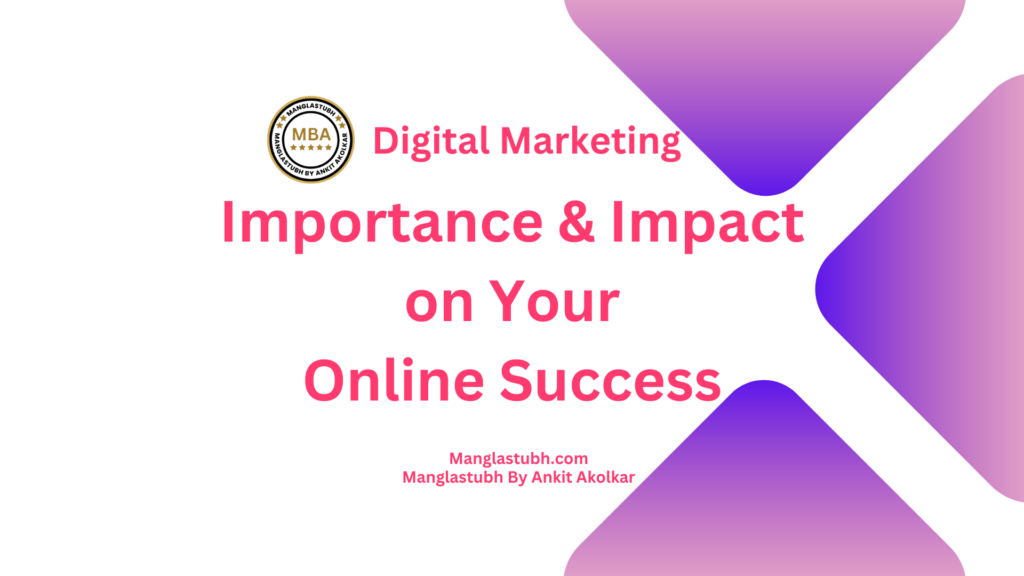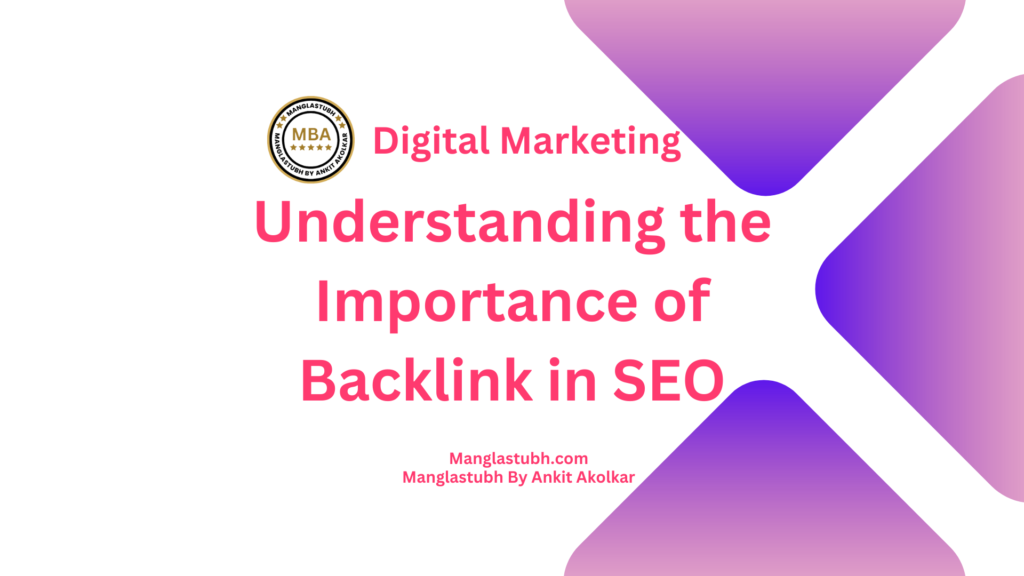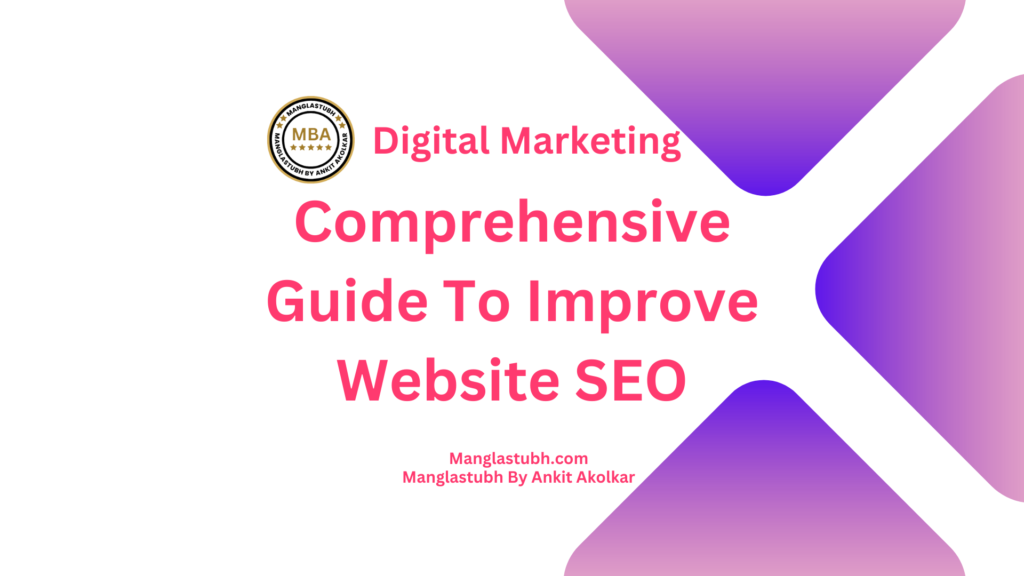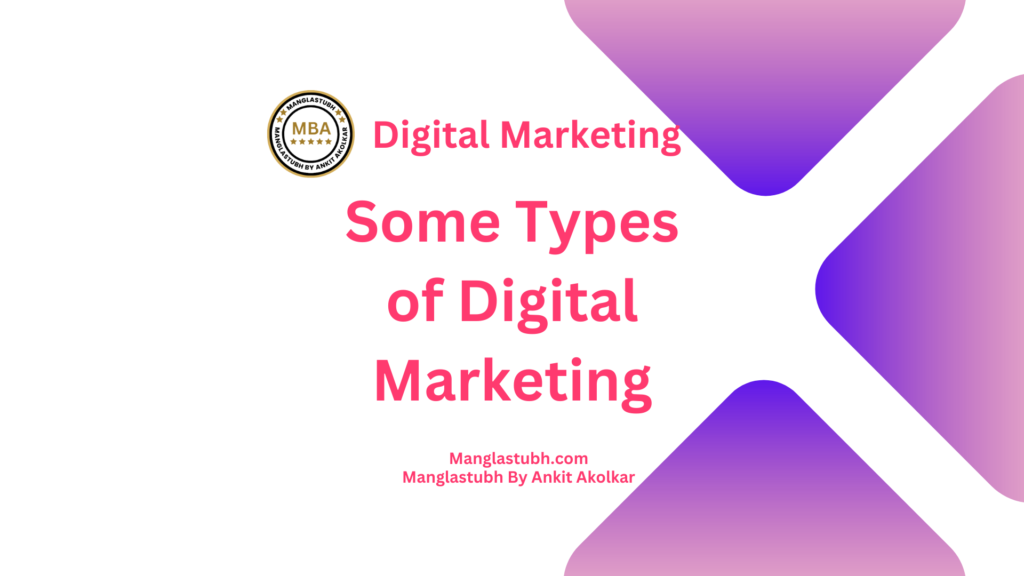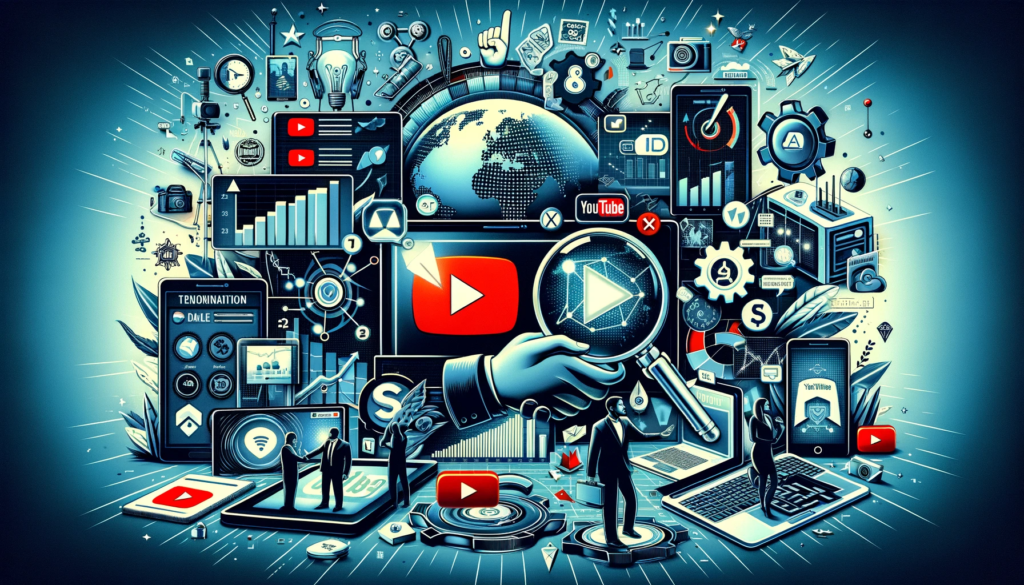Introduction
In today’s digital age, where consumers are constantly bombarded with advertising and marketing messages, it has become crucial for businesses to find ways to stand out from the crowd. One highly effective strategy that has emerged is personalized marketing. By tailoring your marketing efforts to the individual preferences and needs of your target audience, you can create a more engaging and memorable experience for them. In this article, we will explore the importance of personalization in digital marketing, the benefits it can bring, and how you can harness its power to supercharge your digital marketing campaigns. Let’s start with Personalize A Digital Marketing Campaign
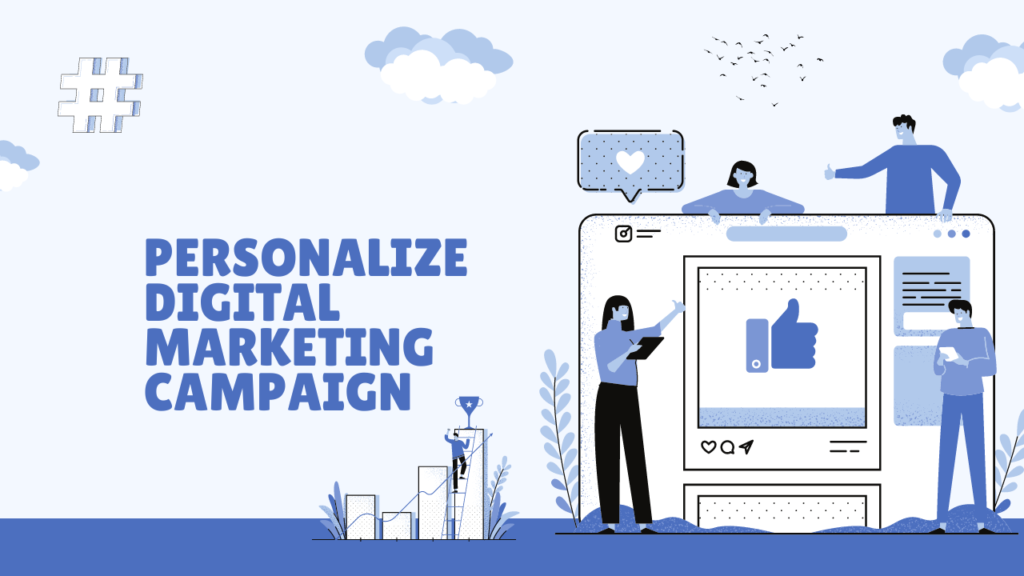
Understanding personalize a digital marketing
Personalize A Digital Marketing Campaign is all about delivering targeted and relevant content to your audience. It involves understanding the unique characteristics, preferences, and behaviors of your target customers, and using that knowledge to create tailored marketing messages and experiences for them. This can be done through various channels, such as email marketing, content marketing, social media marketing, and more.
The key to successfully Personalize A Digital Marketing Campaign lies in data. By collecting and analyzing data about your customers, you can gain valuable insights into their demographics, interests, purchasing history, and online behaviors. This data can then be used to create highly targeted marketing campaigns that resonate with your audience on a personal level.
Benefits of Personalize A Digital Marketing Campaign
Firstly, it helps you build stronger relationships with your customers. By providing them with personalized experiences, you show that you understand and care about their individual needs and preferences. This can foster a sense of loyalty and trust, leading to repeat business and customer advocacy.
Secondly, Personalize A Digital Marketing Campaign can significantly improve your conversion rates. When your marketing messages are tailored to the specific interests and needs of your audience, they are much more likely to resonate and drive action. Whether it’s a call to purchase a product, sign up for a newsletter, or engage with your brand on social media, personalized marketing can significantly increase your chances of success.
Furthermore, Personalize A Digital Marketing Campaign can also lead to higher customer satisfaction and engagement. When customers feel that your brand understands them and delivers relevant content, they are more likely to engage with your marketing efforts and become brand advocates. This can lead to positive word-of-mouth, increased brand awareness, and ultimately, more business.
Personalization Statistics in Digital Marketing
The power of personalization in digital marketing is backed by numerous statistics and studies. According to a study by Epsilon, 80% of consumers are more likely to do business with a company that offers personalized experiences. Additionally, a study by Infosys found that 86% of consumers say personalization plays a role in their purchasing decisions.
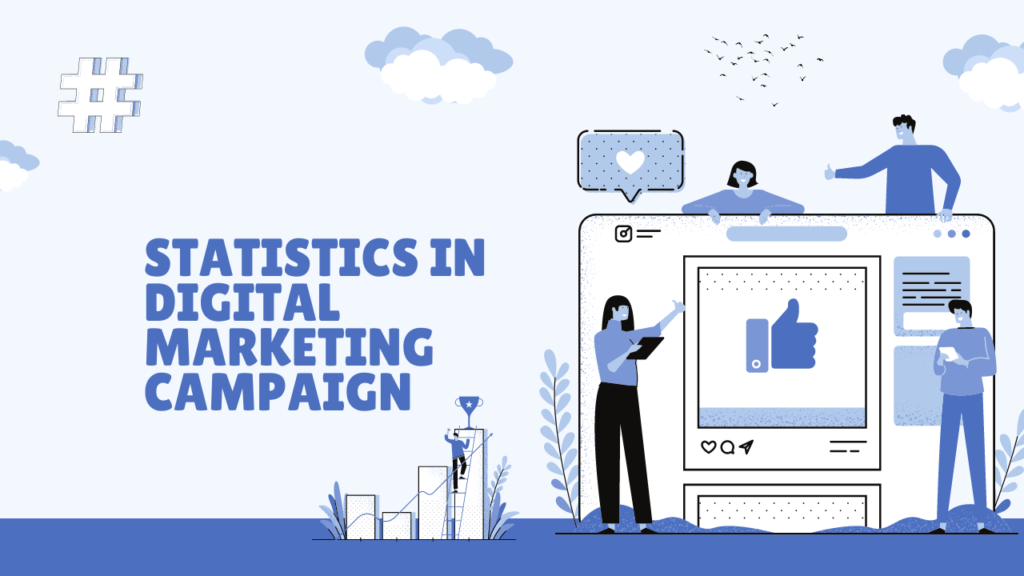
Furthermore, research by Evergage shows that 88% of marketers have seen measurable improvements in their business thanks to personalization. And according to a study by Accenture, 91% of consumers are more likely to shop with brands that provide relevant offers and recommendations.
These statistics highlight the immense impact that personalization can have on your digital marketing efforts. By leveraging personalization strategies, you can tap into the preferences and needs of your audience, and drive significant business growth.
Steps to Creating a Digital Marketing Strategy
To harness the power of personalization in your digital marketing campaigns, it is essential to have a well-defined strategy in place.
- Define Your Goals and Objectives: Start by clearly defining what you want to achieve with your digital marketing efforts. Are you looking to increase brand awareness, generate leads, or drive sales?
- Identify the Target Audience: Conduct market research, analyze customer data, and create buyer personas to guide your marketing efforts.
- Competitor Analysis: Study your competitors and identify their strengths, their weaknesses, and their strategies. This will help you differentiate yourself and find unique selling points for your brand.
- Choose Your Digital Marketing Channels: Determine which digital marketing channels are most relevant to your target audience. This could include SM social media, email marketing, content marketing, SEO search engine optimization, and more.
- Develop Your Brand Message: Create a cohesive brand message that resonates with your target audience. This message should align with your brand values and communicate the unique value you bring to customers.
- Create Content Marketing Strategy: Develop a content marketing strategy that aligns with your brand message and target audience. This could include creating blog posts, videos, infographics, and other types of content that provide value to your audience.
- Optimize Your Website: Ensure that your website is user-friendly, mobile-responsive, and optimized for search engines. This will help improve your online visibility and drive traffic to your site.
- Implement Marketing Automation: Use marketing automation tools to streamline your marketing processes and deliver personalized experiences at scale. This could include email automation, lead nurturing, and personalized content recommendations.
- Measure and Analyze: Regularly monitor and analyze the performance of your digital marketing campaigns. Use data and analytics to identify areas of improvement and optimize your strategies accordingly.
By following these steps, you can create a comprehensive digital marketing strategy that incorporates personalization and maximizes your chances of success.
Creating a Personalize A Digital Marketing Campaign
Once you have a solid digital marketing strategy in place, it’s time to create your digital marketing campaign. Personalize A Digital Marketing Campaign is a focused, strategic effort to promote a specific product, service, or initiative using digital channels. Here are the key steps to create an effective digital marketing campaign:
- Define Your Campaign Objective: Clearly define the objective of your campaign. Are you looking to drive sales, generate leads, increase brand awareness, or promote a specific offer?
- Identify Your Target Audience: Determine who your campaign is targeting. This could be a specific segment of your overall target audience or a new audience you are trying to reach.
- Craft Your Campaign Message: Develop a compelling campaign message that resonates with your target audience. This message should clearly communicate the benefits and value of your offering.
- Choose Your Digital Marketing Channels: Select the digital marketing channels that are most relevant to your campaign objectives and target audience. This could include social media, email marketing, search engine marketing, display advertising, and more.
- Create Engaging Content: Develop high-quality content that aligns with your campaign message and target audience. It includes videos, blog posts, social media posts, infographics, and more.
- Design Eye-Catching Visuals: Use visually appealing graphics and images to capture the attention of your audience. Visuals can significantly enhance the effectiveness of your digital marketing campaigns.
- AMP Optimize for Mobile: Make sure that your campaign is optimized for mobile devices. With the increasing use of smartphones, it’s essential to provide a seamless mobile experience for your audience.
- Set Your Budget: Determine your campaign budget and allocate it across the different digital marketing channels. This will help you optimize your spending and maximize your return on investment.
- Monitor, Measure, and Optimize: Continuously monitor and measure the performance of your campaign. Use data and analytics to identify areas of improvement and optimize your campaign strategies accordingly.
By following these steps, you can create a highly targeted and effective digital marketing campaign that delivers results.
Setting up a Digital Marketing Funnel
A digital marketing funnel is a framework that helps guide your audience through the customer journey from awareness to conversion. It consists of multiple stages, each designed to move your audience closer to taking the desired action. Here are the key stages of a digital marketing funnel:
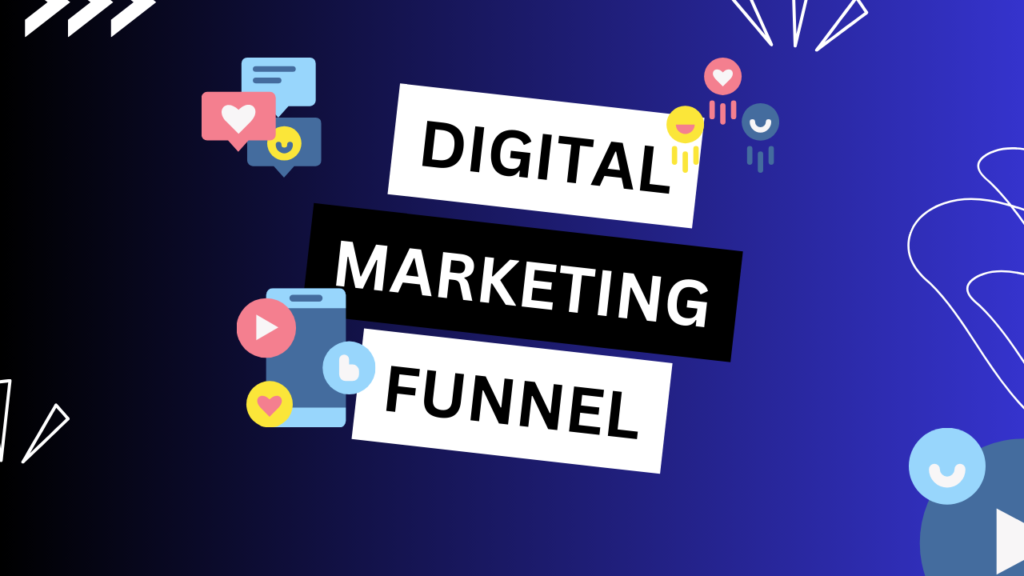
- Awareness Stage: At this stage, your goal is to create awareness and capture the attention of your target audience. This can be done through various channels, such as social media, content marketing, search engine optimization, and online advertising.
- Interest Stage: Once you have captured the attention of your audience, it’s time to nurture their interest. Provide valuable and relevant content that educates and engages them. This could include blog posts, videos, webinars, and more.
- Decision Stage: At this stage, your audience is considering whether to take the desired action, such as making a purchase or signing up for a newsletter. Provide clear and compelling calls-to-action that encourage them to take the next step.
- Action Stage: This is the final stage of the funnel, where your audience takes the desired action. It could be making a purchase, filling out a form, or subscribing to a service. Make the process as seamless and straightforward as possible to maximize conversions.
By mapping out your digital marketing funnel and creating targeted content for each stage, you can guide your audience through the customer journey and increase your chances of conversion.
Brand Awareness through Digital Marketing
One of the key benefits of digital marketing is its ability to enhance brand awareness. By leveraging various digital channels, you can reach a vast audience and create meaningful interactions with your target customers. Here are some ways digital marketing can enhance brand awareness:
- Social Media Marketing: Social media platforms provide an excellent opportunity to interact with your target audience and build brand awareness. Create engaging content, run contests and giveaways, and encourage user-generated content to increase your brand visibility.
- Content Marketing: Content marketing is a powerful tool for building brand awareness. By consistently creating and sharing valuable content, you can position yourself as an industry expert and build trust with your audience.
- Search Engine Optimization: Optimizing your website and content for search engines can significantly improve your brand visibility. By appearing on the first page of search engine results, you increase the chances of being noticed by potential customers.
- Influencer Marketing: Collaborating with influencers in your industry can help you reach a wider audience and build brand awareness. Identify influencers who align with your brand values and have a significant following, and partner with them to promote your products or services.
- Online Advertising: Digital advertising, such as Google Ads, Facebook Ads, and display advertising, can help you reach a highly targeted audience and increase brand visibility. Use compelling ad creatives and targeting options to maximize the impact of your ads.
By leveraging these digital marketing strategies, you can enhance your brand awareness and establish a strong online presence.
Personalized Email Marketing
Email marketing remains one of the most effective digital marketing strategies, and personalizing your email campaigns can take your results to the next level. Here are some tips for personalized email marketing:
- Segment Your Email List: Divide your email list into segments based on demographics, interests, purchasing history, or engagement level.
- Use Personalization Tokens: Use personalization tokens to dynamically insert the recipient’s name, location, or other relevant information into the email. This adds a personal touch and makes the email feel more tailored to the individual.
- Tailor Content to Each Segment: Create different versions of your email content based on the segments you have defined. This could include different offers, product recommendations, or content that aligns with each segment’s interests.
- Automate Your Email Campaigns: Use email automation tools to send personalized emails at the right time and frequency. This could include welcome emails, abandoned cart emails, birthday emails, and more.
- Track and Analyze Results: Regularly monitor and analyze the performance of your email campaigns. Track metrics such as open rates, click-through rates, and conversion rates to identify areas of improvement.
By implementing these strategies, you can create highly personalized and engaging email campaigns that drive results.
Personalized Content Marketing
Content marketing is a powerful way to engage with your audience and build brand loyalty. By personalizing your content, you can make it even more impactful. Here are some techniques for personalized content marketing:
- Create Buyer Personas: Understand buyer interests, pain points, and preferences, and create content that addresses their specific needs.
- Tailor Content Formats: Different people prefer consuming content in different formats. Some may prefer videos, while others may prefer blog posts or infographics. Tailor your content formats to cater to the preferences of your audience.
- Use Dynamic Content: Use dynamic content tools to deliver personalized content based on the user’s behavior or preferences. This could include personalized product recommendations, content recommendations, or customized landing pages.
- Personalize Calls-to-Action: Tailor your calls-to-action based on the user’s behavior or stage in the customer journey. For example, if a user has already made a purchase, you can show them a different call-to-action compared to someone who is still in the consideration stage.
By implementing these personalized content marketing techniques, you can create highly engaging and relevant content that resonates with your audience.
Tools and Techniques for Personalization in Digital Marketing
To effectively implement personalization in your digital marketing campaigns, it’s essential to leverage the right tools and techniques. Here are some tools and techniques that can help you achieve personalization at scale:
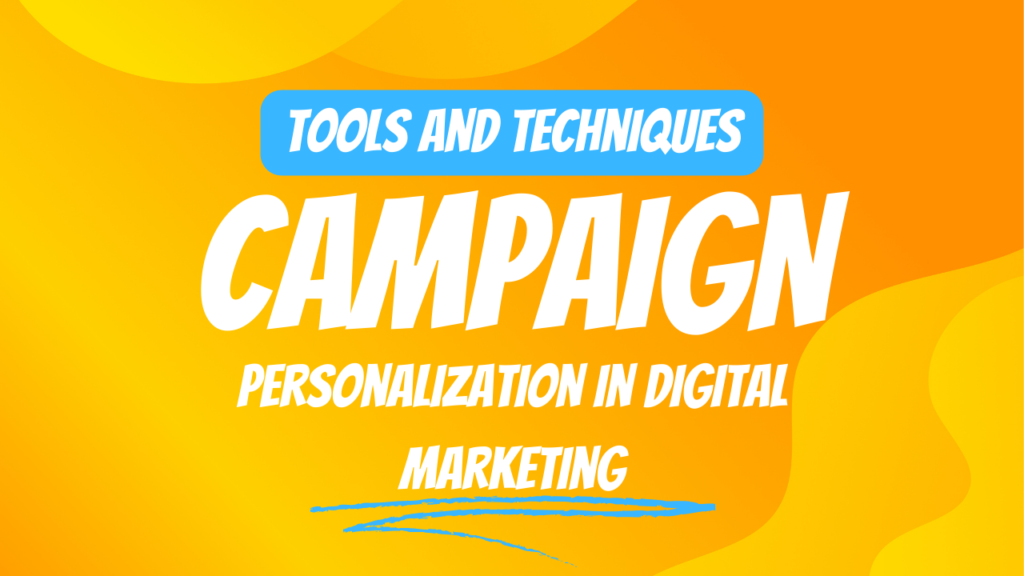
- Customer Relationship Management (CRM) Systems: CRM systems allow you to store and manage customer data, segment your audience, and deliver personalized experiences. Popular CRM platforms include Salesforce, HubSpot, and Zoho.
- Marketing Automation Platforms: Marketing automation platforms enable you to automate your marketing workflows and deliver personalized experiences. These platforms often integrate with CRM systems and provide features such as email automation, lead nurturing, and personalized content recommendations. Popular marketing automation platforms include Marketo, Pardot, and ActiveCampaign.
- Personalization Software: Personalization software uses artificial intelligence and machine learning algorithms to deliver personalized experiences across various channels. These tools can analyze customer data in real-time and provide personalized product recommendations, content recommendations, and dynamic website experiences. Popular personalization software includes Evergage, Optimizely, and Dynamic Yield.
- Data Analytics Tools: Data analytics tools help you collect, analyze, and interpret customer data to gain insights and identify personalization opportunities. These tools often integrate with CRM and marketing automation platforms and provide features such as data visualization, dashboards, and predictive analytics. Popular data analytics tools include Google Analytics, Adobe Analytics, and Tableau.
FAQs about Personalization in Digital Marketing
What is personalization in digital marketing?
Why is personalization important in digital marketing?
How can I implement Personalize A Digital Marketing Campaign?
What are some popular tools for personalize a Digital Marketing Campaign?
What are the benefits of personalization in digital marketing?
Personalize A Digital Marketing Campaign. Manglastubh By Ankit Akolkar. Search on Google Free Online Courses.

Welcome to Manglastubh By Ankit Akolkar. Manglastubh website is designed and developed for all kinds of Knowledge-Based Blogs and Articles. Everyone will gain knowledge over here from this website.


